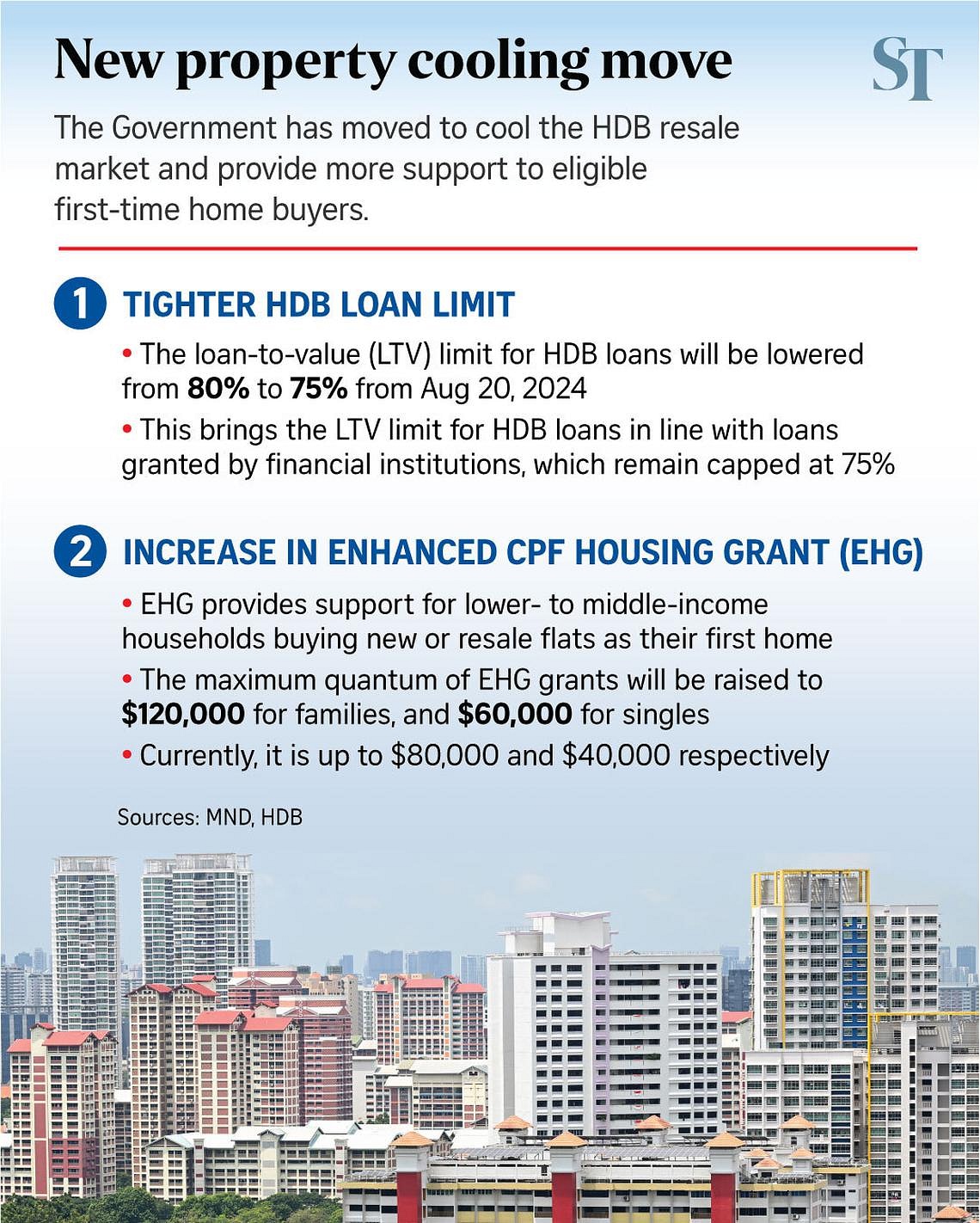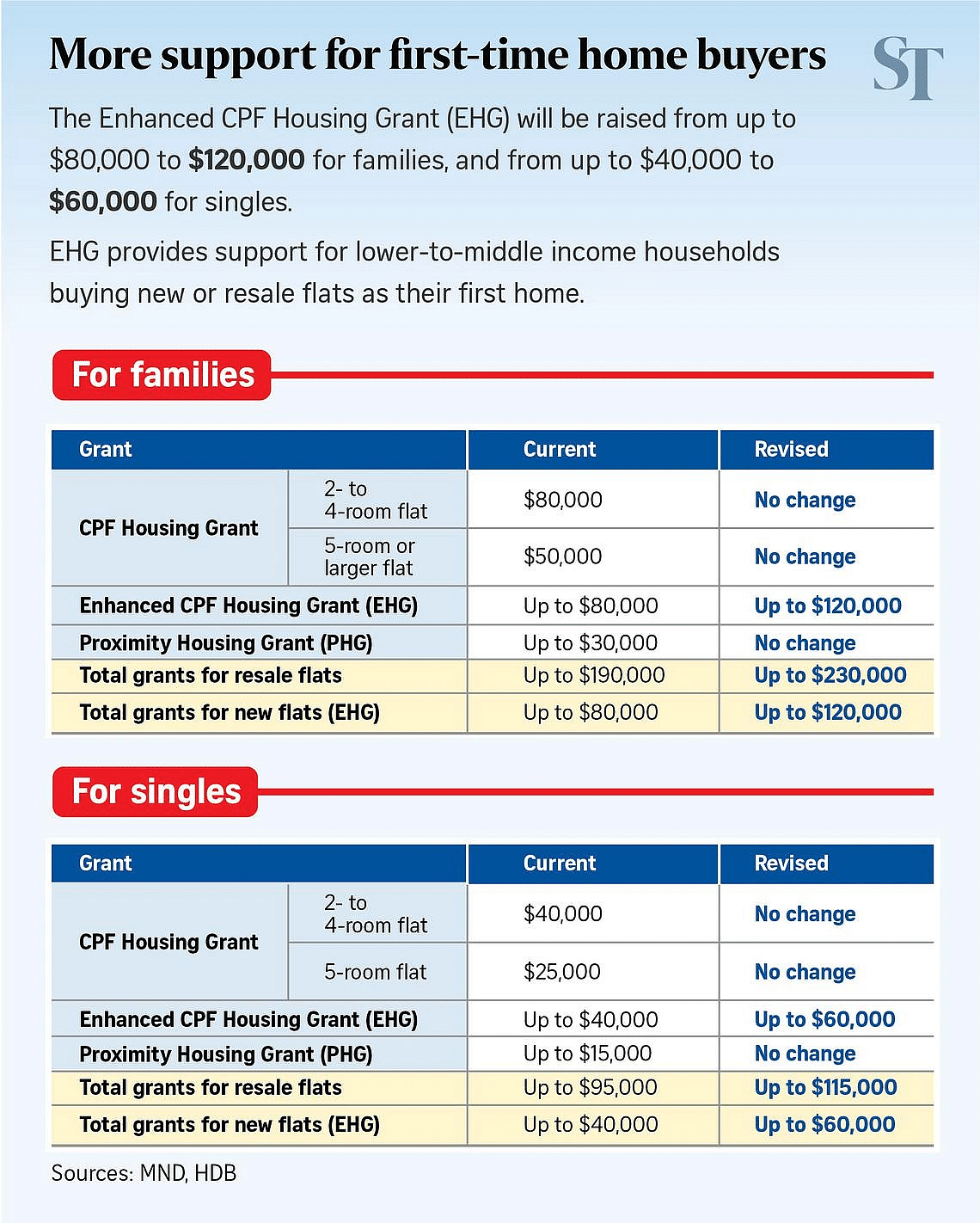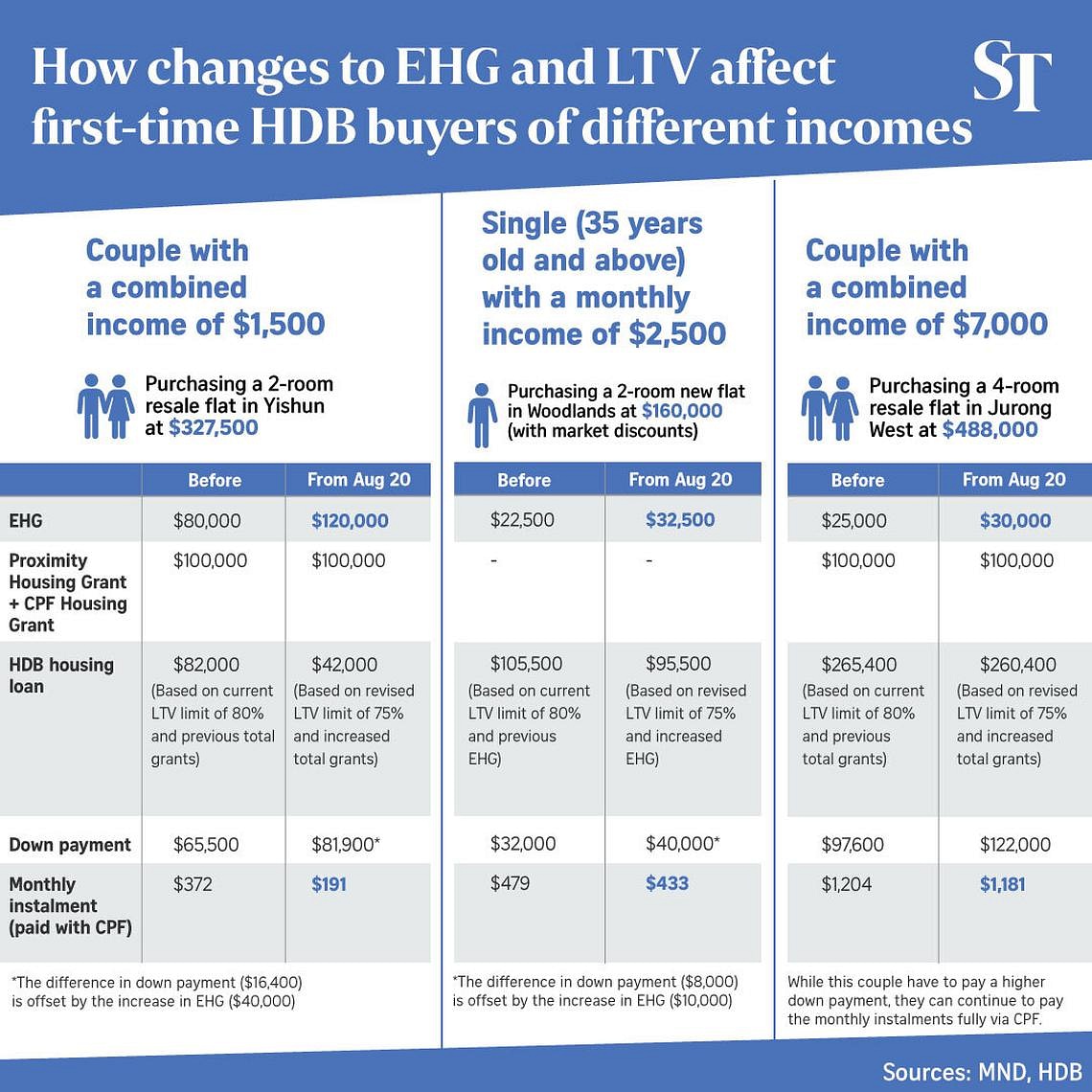SINGAPORE – The move to tighten the maximum loan that home buyers can take from the Housing Board is meant to encourage prudent borrowing and dampen demand at the higher end of the HDB resale market, said National Development Minister Desmond Lee.
The latest round of property measures, which kicked in on Aug 20, saw the loan-to-value (LTV) limit, or the maximum amount one can borrow from HDB to fund a new or resale flat purchase, reduced from 80 per cent to 75 per cent.
Explaining the Government’s move in a media briefing on Aug 20, Mr Lee said about a tenth of home buyers took out HDB loans exceeding 75 per cent of the flat price.
But they “disproportionately” bought larger flat types and paid higher prices for them, said Mr Lee.
This group of buyers was not insignificant. Depending on the flat type, the median buyer in this group paid between $20,000 and $60,000 more than other buyers who took loans of 75 per cent and below, he added.
“And so they are contributing to the overall higher prices in the HDB resale market.”
The move to tighten the LTV limit means that buyers will be allowed to borrow less than before – up to 75 per cent of the flat value, compared with 80 per cent before.
It also brings the HDB loan limit in line with that of mortgages granted by financial institutions, which remains unchanged at 75 per cent.
Mr Lee said high HDB resale prices have caught public attention, but noted that in the past 1½ years, million-dollar flats made up only about 2 per cent of all transactions.
Such transactions made up 0.5 per cent of four-room or smaller flats transacted in the past two years, he added.
That said, these transactions have caused “Singaporeans to be concerned about the affordability of resale flats as a whole”, the minister said.
“If we are not careful, such market dynamics can cause the resale market to run out of line with economic fundamentals and cause a bubble.”
Addressing concerns about the lower LTV limit, Mr Lee said the vast majority of buyers with HDB loans will not be affected.
Nearly nine in 10 home buyers with such loans borrow 75 per cent or less of the flat price, he said.
The proportion of resale flat buyers who took an HDB loan increased from 38 per cent in 2022 to 53 per cent in 2023. It remains at 53 per cent for the first half of 2024.
The latest changes in HDB rules mark the fourth such effort to cool the property market since December 2021.
Mr Lee said the changes are meant to encourage buyers to be prudent in their flat purchase in an unpredictable economic climate, he said.
The other change is an increase in the Enhanced CPF Housing Grant (EHG), which Mr Lee said will cushion the impact of the lower LTV for lower- to middle-income households.
From Aug 20, the EHG will be raised so eligible families and singles would be able to get up to $120,000 and up to $60,000, respectively.
Previously, the grant gave a maximum of $80,000 for families and $40,000 for singles buying their first new or resale flat.

Mr Lee said that about 85 per cent of first-time buyers, or more than 13,000 households, are expected to benefit from this move each year.
“This is a significant increase from what we provided previously, and will help first-time home buyers afford their first home,” he said.
Lower-income households will receive the most support, he added.
Families with an average monthly household income of $1,500 and below can tap the full $120,000 grant, while singles with a monthly income of $750 and below will get the full $60,000 in financial support.
The increased grant would also help these groups afford Build-To-Order (BTO) flats in attractive locations when the Government rolls out the new Prime, Plus and Standard flat classification from the upcoming BTO exercise in October, Mr Lee said.

When asked at the media briefing about whether buyers were paying cash over valuation (COV) in recent years, HDB’s group director of the estate administration and property group Tan Chew Ling said more than half of resale flat buyers do not pay COV.
COV is the amount a buyer has to pay in cash when a resale flat is sold above its HDB valuation.
For buyers who paid COV, the median amount stood at around $30,000 in the past two years, and remains at $30,000 in the first half of 2024.
Mr Lee said the Government will continue to watch the property market closely and will not hesitate to act to ensure that prices remain in line with economic fundamentals.
“History tells us that the property market moves in cycles, and those who buy at higher prices with larger loans are also hardest hit when the market cools. This is why we are moving now to dampen demand and encourage prudent borrowing, even as we continue to inject supply at a steady pace to meet demand,” he said.



